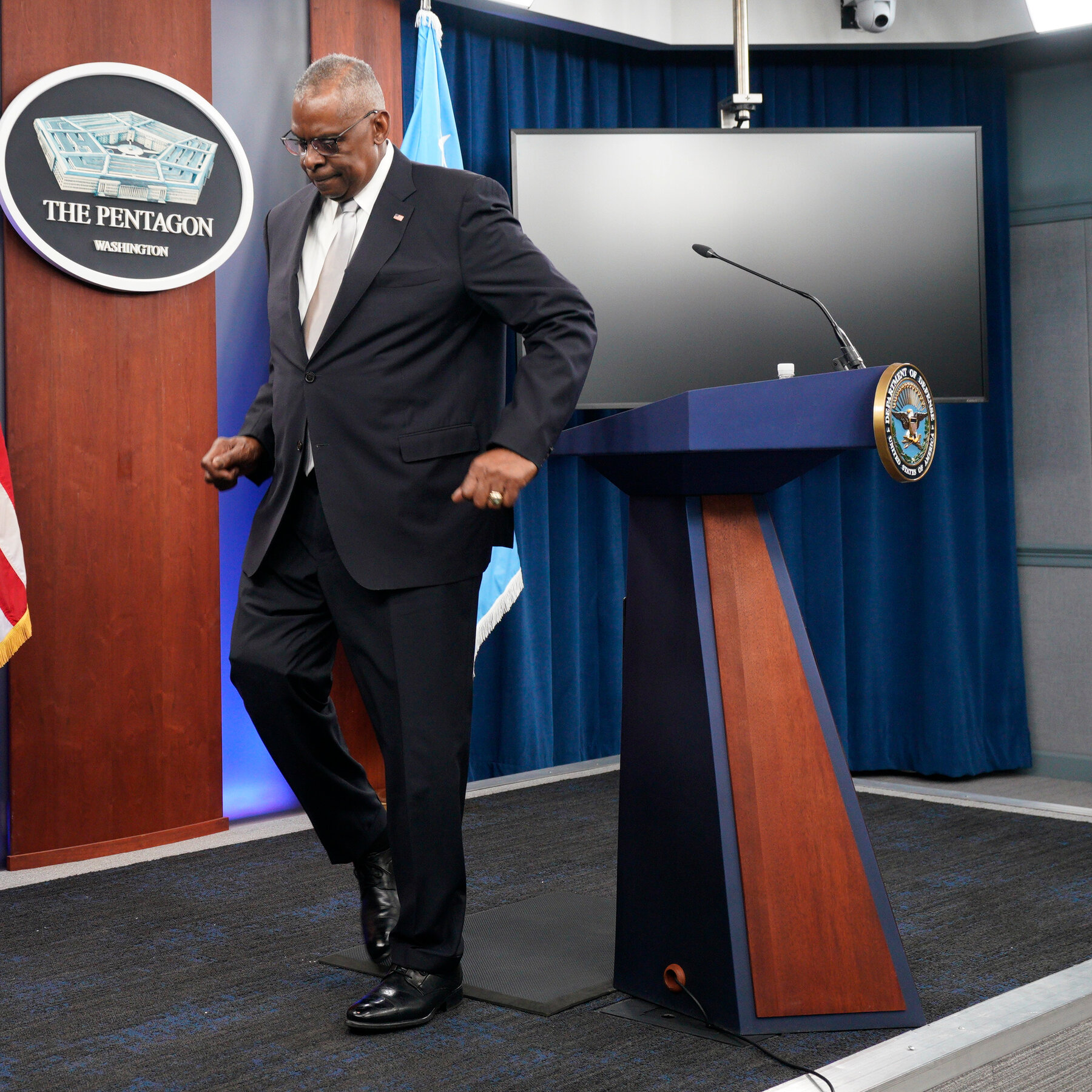Lloyd Austin Taken to Hospital for Bladder Issue

The Pentagon said the White House, the Joint Chiefs and Congress had been notified of the defense secretary’s condition, unlike when he kept complications from prostate surgery secret last month.
The Pentagon announced on Sunday that Defense Secretary Lloyd J. Austin III had been taken that afternoon to a military hospital to be treated for “symptoms suggesting an emergent bladder issue.”
Mr. Austin was taken to Walter Reed National Military Medical Center in Bethesda, Md., at 2:20 p.m., a Pentagon spokesman, Maj. Gen. Patrick S. Ryder, said in a statement. He added that the deputy defense secretary and the chairman of the Joint Chiefs of Staff had been notified, as well as the White House and members of Congress.
In a second statement on Sunday evening, General Ryder said that Mr. Austin, 70, had “transferred the functions and duties” of his office to the deputy defense secretary, Kathleen H. Hicks, at about 4:55 p.m.
The announcements appeared to be aimed at showing transparency around Mr. Austin’s medical condition and stressing the fact that multiple top officials across the U.S. government had been informed.
Mr. Austin came under widespread criticism last month when he went to the hospital for several days for treatment for complications related to a recent prostate cancer surgery. He had initially kept his hospital visit a secret from top administration officials, including President Biden, the White House national security adviser, the secretary of state and senior officials in the Pentagon, including those immediately under him in the office.
Mr. Austin also had not informed the president that he had undergone the original surgery in December.
Lawmakers called for the Pentagon to provide answers on why so many officials were kept in the dark. Mr. Biden said on Jan. 12 that he still had confidence in Mr. Austin. But when the president was asked whether it had been a lapse in judgment for Mr. Austin not to have informed him that he had been out of commission, Mr. Biden said “yes.”
Mr. Austin, a retired four-star Army general and former commander of the United States Central Command, had served in the military for more than 40 years when he took the top Pentagon job in 2021. Throughout his career, he has sought to avoid attention and has tried to keep many parts of his life out of the public spotlight.
General Ryder said the Pentagon would provide an update on Mr. Austin’s condition as soon as possible.
